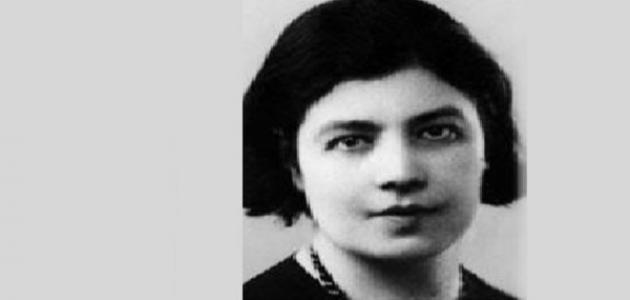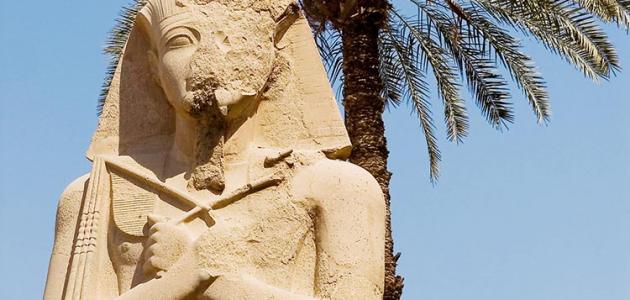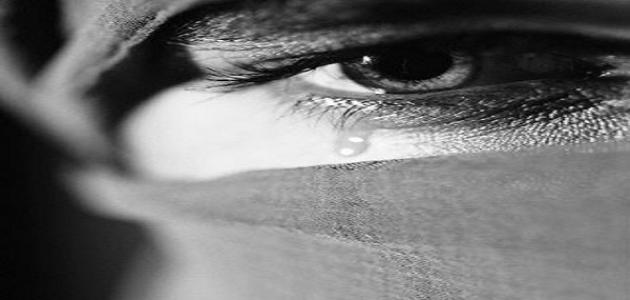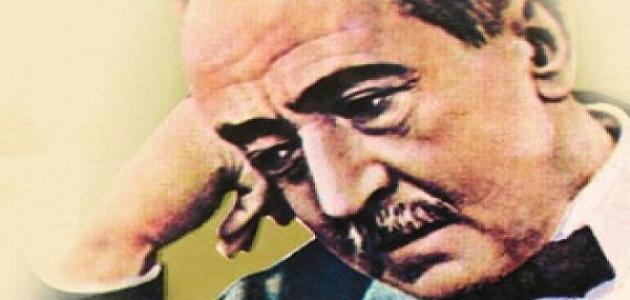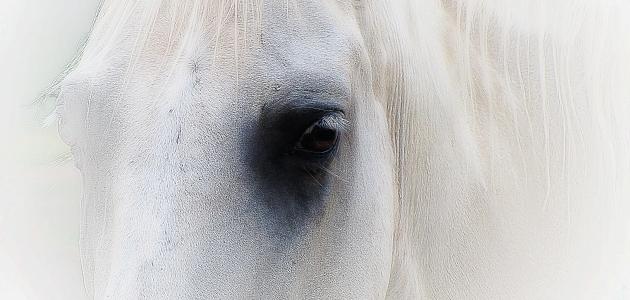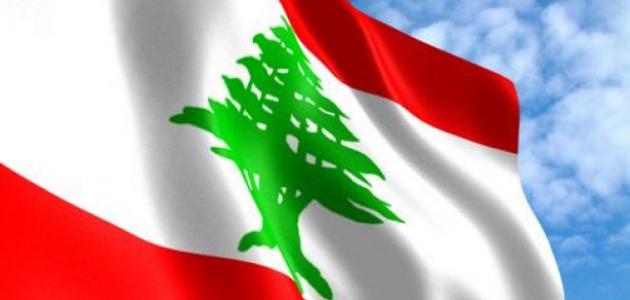Nile poet
The Poet of the Nile is Muhammad Hafez Ibrahim, known as Hafez Ibrahim. He is one of the most prominent poets in Egypt. He is also called the People’s Poet. He was one of the distinguished poets of his time, famous for his political and social poems. Hafez Ibrahim was known for having a photographic memory that enabled him to memorize ancient and contemporary poems. Hafez Ibrahim was one of the poets who revived Arabic poetry in the second half of the nineteenth century. He was known for his eloquence, generosity, and sense of humor and love of jokes.
The poet's life
Hafez Ibrahim was born on February 24, 1872 AD on a ship that was on the Nile near the village of Dayrut in Egypt. His father is Egyptian and his mother is Turkish. He lived as an orphan of mother and father, as his uncle raised him after his parents died when he was young. His mother brought him to Cairo before... She died so he could live with his uncle, who worked as a government engineer and was poor and complaining of dire circumstances. He moved with his uncle to the city of Tanta, where he joined school and began his studies. Hafez Ibrahim began noticing his uncle’s financial distress and the difficult conditions he was living in, which prompted him to leave home and move far away. He wrote him a note explaining the reason for his departure, saying that it had become a burden on him and wishing him happiness after him. He then headed to live in the streets of Tanta, until he met the lawyer Muhammad Abu. Shadi, who led the 1919 revolution.
Read also:Summary of the novel Men in the SunHafez Ibrahim joined the military school, and graduated from it with the rank of second lieutenant in 1890 AD. He was sent to the Sudan region with an expedition led by Lord Kitchener to perform his military service. He remained there for five years during which he began writing poetry, but he established a national association there with some officers. Which led to his arrest and being referred for deposition. Then he was returned to work with the police, but he did not continue with them for a long time. He was sent to retirement, as his service in the army and the police lasted for 14 years. He published his first collection in 1901 AD, then he continued writing his poems, which were rejected. Imperialism, he was a prominent poet and reader in society. Hafez Ibrahim was appointed head of the literary department at the Royal Book House in 1911 AD, and he continued to work there until he was retired in February 1932 AD. It is worth noting that he had obtained the second degree of Al-Bakwiyah in 1912 AD.
Death of the poet
Hafez Ibrahim died on the morning of Thursday, July 21, 1932 AD. He felt unwell and sick when he served dinner for two of his friends, but he did not share the food with them due to his poor health condition. Immediately after they left, his illness became severe, so he sent his servant to call the doctor, and the boy called him. Hafez's friend, Mr. Abdul Hamid Al-Bannan, asked him to bring the doctor quickly, and upon his arrival, he found him in his final struggle with death and unable to speak. He died the next morning, and was buried in the graves of Mrs. Nafisa. The news had a severe impact on his loved ones and the poets, gentlemen, and presidents who lived with him at that time.
Read also:Poems of the poet Saad AlloushThe most prominent works of the poet
Hafez Ibrahim was known as a nationalist poet indebted to imperialism, but his works were not limited to poetry only. He only wrote in prose and translated many foreign books. Among the most prominent works of Hafez Ibrahim are the following:
Read also:Plato's Utopia- The poem “I Dress You with Blood on Blood.”
- A poem, my lord and my imam.
- A poem that thanked you for your beautiful work.
- Egypt's poem speaks for itself.
- Poem: I have a better garment than another.
- A poem: Tell the president, may God perpetuate his state.
- He translated the novel Les Misérables written by Victor Hugo in 1903 AD.
- A book titled “Satih Nights”.
- The joint book with Mr. Khalil Mutran is entitled Al-Mujaz fi Economics.
- A book entitled National Education.
- A poem titled About the Prison of Merit.
- A poem titled Hijri Poem.

